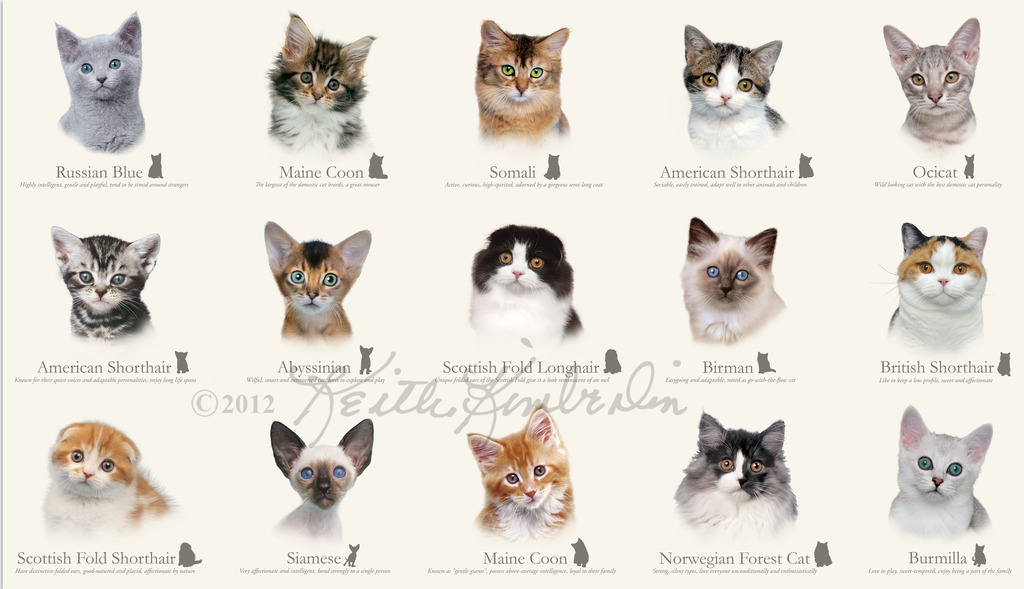Large breeds of domestic cats captivate feline lovers with their majestic appearance, friendly demeanor, and unique characteristics. These impressive cats are not only eye-catching but also possess wonderful personalities that make them excellent companions. If you are considering bringing a large cat into your home, understanding their traits, care needs, and breed distinctions is essential.
Why Choose Large Breeds of Domestic Cats?
Large cat breeds offer numerous advantages that make them desirable pets. Their robust size often correlates with a strong yet affectionate nature, and they tend to be more sociable compared to smaller breeds. Here are some reasons why large domestic cats are a great choice:
- Friendly and Affectionate: Most large cat breeds are known for their loving personalities.
- Great with Families: Their social temperament makes them excellent companions for families.
- Highly Intelligent: Many large cats display high intelligence, making them easier to train.
- Playful and Energetic: Despite their size, these cats are active and love engaging in playtime.
- Unique Appearance: Their striking looks add an elegant touch to any home.
Top Large Breeds of Domestic Cats
Maine Coon
The Maine Coon is one of the most popular large cat breeds, known for its bushy tail, tufted ears, and friendly personality. These gentle giants are affectionate and enjoy interacting with their owners.
- Size: 10-16 inches tall, 10-25 pounds
- Personality: Sociable, intelligent, and playful
- Coat: Thick, long fur that requires regular grooming
- Lifespan: 12-15 years
Savannah Cat
A hybrid breed that originated from crossing domestic cats with servals, Savannah cats are highly energetic and intelligent. Their striking appearance resembles their wild ancestors while still being domesticated.
- Size: 14-17 inches tall, 12-25 pounds
- Personality: Energetic, intelligent, and affectionate
- Coat: Short, spotted fur requiring minimal grooming
- Lifespan: 12-20 years
Ragdoll
Ragdolls are known for their docile and affectionate nature. They love being around people and often go limp when picked up, hence their name.
- Size: 9-11 inches tall, 10-20 pounds
- Personality: Gentle, loving, and relaxed
- Coat: Soft, semi-long fur requiring regular grooming
- Lifespan: 12-17 years
Norwegian Forest Cat
Originating from Norway, this breed is well adapted to cold climates with its thick, water-resistant coat. Norwegian Forest Cats are independent yet affectionate, making them great pets.
- Size: 9-12 inches tall, 10-20 pounds
- Personality: Independent, playful, and affectionate
- Coat: Dense, long fur requiring frequent grooming
- Lifespan: 14-16 years
Chausie
A unique hybrid breed developed from domestic cats and wild jungle cats, Chausies are highly athletic and love an active lifestyle. They require plenty of playtime and mental stimulation.
- Size: 14-18 inches tall, 15-25 pounds
- Personality: Adventurous, active, and intelligent
- Coat: Short, sleek fur that is easy to maintain
- Lifespan: 12-14 years
Caring for Large Domestic Cats
Diet and Nutrition
Large breeds of domestic cats require a nutrient-rich diet that supports their muscle mass and energy levels. High-quality protein sources such as chicken, fish, and turkey should be the main ingredients in their food.
- Ensure a protein-rich diet to maintain muscle strength
- Monitor portion sizes to prevent obesity
- Provide fresh water at all times
- Consider supplements for joint health in larger breeds
Grooming Needs
Most large cats have thick coats that require regular grooming. Long-haired breeds like the Maine Coon and Norwegian Forest Cat need more frequent brushing than short-haired breeds.
- Brush at least 2-3 times a week to prevent matting
- Use a high-quality brush suitable for their coat type
- Trim nails regularly to avoid overgrowth
Exercise and Mental Stimulation
Due to their size and energy levels, large domestic cats benefit from plenty of exercise and mental engagement. Interactive toys, puzzle feeders, and climbing structures help keep them entertained.
- Provide cat trees for climbing and scratching
- Engage in daily play sessions with toys like laser pointers or feather wands
- Create an enriching environment with tunnels, shelves, and hiding spots
Healthcare and Veterinary Visits
Larger cats may be prone to health issues such as hip dysplasia, obesity, and heart disease. Regular vet checkups are essential to monitor their health.
- Schedule routine vet visits at least once a year
- Watch for signs of joint pain or difficulty in movement
- Maintain a balanced diet to prevent weight-related issues
Conclusion
Large breeds of domestic cats are a fantastic choice for cat lovers who appreciate a blend of elegance, affection, and intelligence in their pets. These cats require dedicated care, including a proper diet, grooming, exercise, and regular vet visits. Their loving personalities make them a joy to have at home, providing companionship and entertainment. Whether you choose a Maine Coon, Savannah, or Ragdoll, these majestic felines bring immense happiness to their owners.
FAQs
What is the largest breed of domestic cat?
The Maine Coon holds the title for the largest domestic cat breed, often reaching up to 25 pounds.
Do large cat breeds require special care?
Yes, they need a well-balanced diet, regular exercise, and frequent grooming to maintain their health.
Are large domestic cats good with children?
Most large breeds, like the Ragdoll and Maine Coon, are gentle and great with kids.
Can large cats live in small apartments?
Yes, but they need vertical space, such as cat trees and shelves, to stay active.
Do large cat breeds shed a lot?
It depends on the breed. Long-haired cats like Norwegian Forest Cats shed more than short-haired breeds like Savannahs.
How much do large cat breeds eat?
They generally consume more food than smaller breeds, but portion control is essential to prevent obesity.
What is the best large cat breed for first-time owners?
The Ragdoll is a great option due to its gentle and easygoing nature.
How long do large domestic cats live?
Their lifespan ranges from 12 to 20 years, depending on breed and care.
